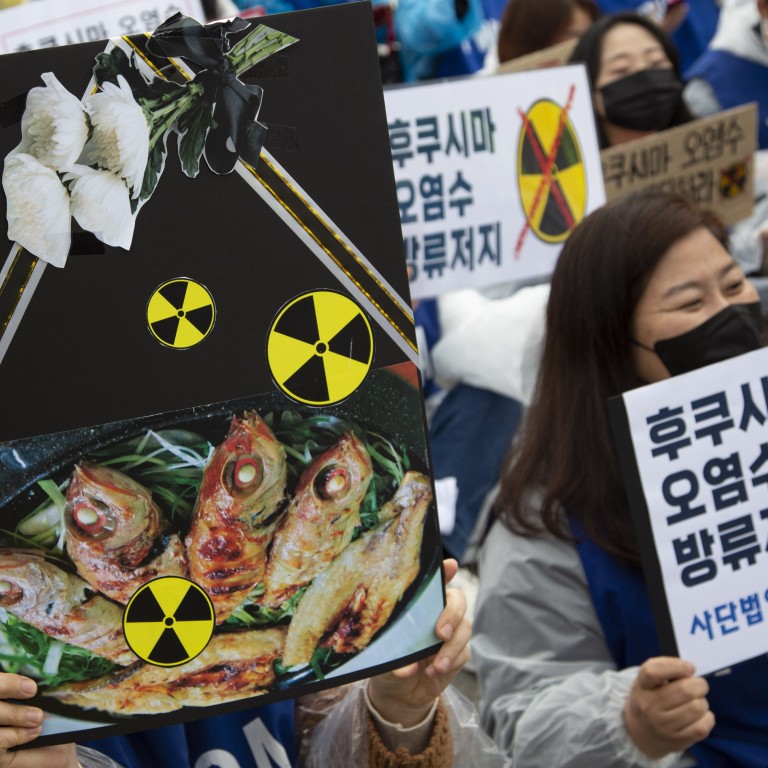
South Korea to step up inspections of seafood imports ahead of Fukushima water release
- The fisheries ministry and coastguard will check from May 1 to June 30 to ensure merchants are properly labelling imported seafood
- If the country of origin is falsely labelled, those responsible could face 7 years in prison or a fine of up to US$75,392
The South Korean government will conduct special inspections of the country of origin of imported seafood products for two months amid mounting public concerns over the discharge of radioactive waste water from Japan’s Fukushima nuclear power plant, according to the fisheries ministry on Wednesday.
The Ministry of Oceans and Fisheries said it will conduct an inspection from May 1 to June 30 with the South Korean coastguard to make sure merchants are properly labelling the origin of the imported seafood products.
Until now, such inspections have been conducted mainly during periods of increased seafood consumption, such as holidays and the kimchi-making season. But the ministry said it decided to conduct the investigation this time due to Japan’s recent plan to discharge radioactive waste water from the nuclear power plant into the sea and the public’s concerns about the safety of seafood products.
Will Japan’s Fukushima power plant survive another quake? New images spark worry
The ministry said the inspection will be a joint effort by the public agencies and the private sector, as inspectors from civic groups such as the National Council of Consumer Education and the Korean Woman’s Federation for Consumer will also join.
“We are strengthening the management of seafood origin labelling by continuously improving the system and conducting special inspections at different times, such as expanding the number of products with labels of origin at restaurants,” Kwon Soon-wook, director of the fishery ministry’s Fisheries Infrastructure and Aquaculture Policy Division, said.
The fishery ministry has conducted preliminary inspections of companies dealing with imported seafood products and has held meetings with organisations involved in enforcing country of origin labelling to discuss the status of inspections and cooperation plans.

The ministry added that the inspection will focus on scallops, red sea breams and sea squirts, which are in high demand this year. Also, importers, distributors and retailers registered with the imported seafood distribution history management system of the National Fishery Products Quality Management Service will be inspected for proper labelling of origin, violation of labelling methods and false labelling.
To actively respond to increasingly sophisticated illegal activities, such as the establishment and operation of bogus wholesale and retail companies, South Korea’s fishery ministry and the coastguard plan to conduct investigations focusing on major imported seafood products.
If the country of origin is falsely labelled, those responsible will face seven years behind bars or a fine of up to 100 million won (US$75,392) and if the country of origin is not labelled, a fine of more than 50,000 won to 10 million won will be imposed, the ministry said.

